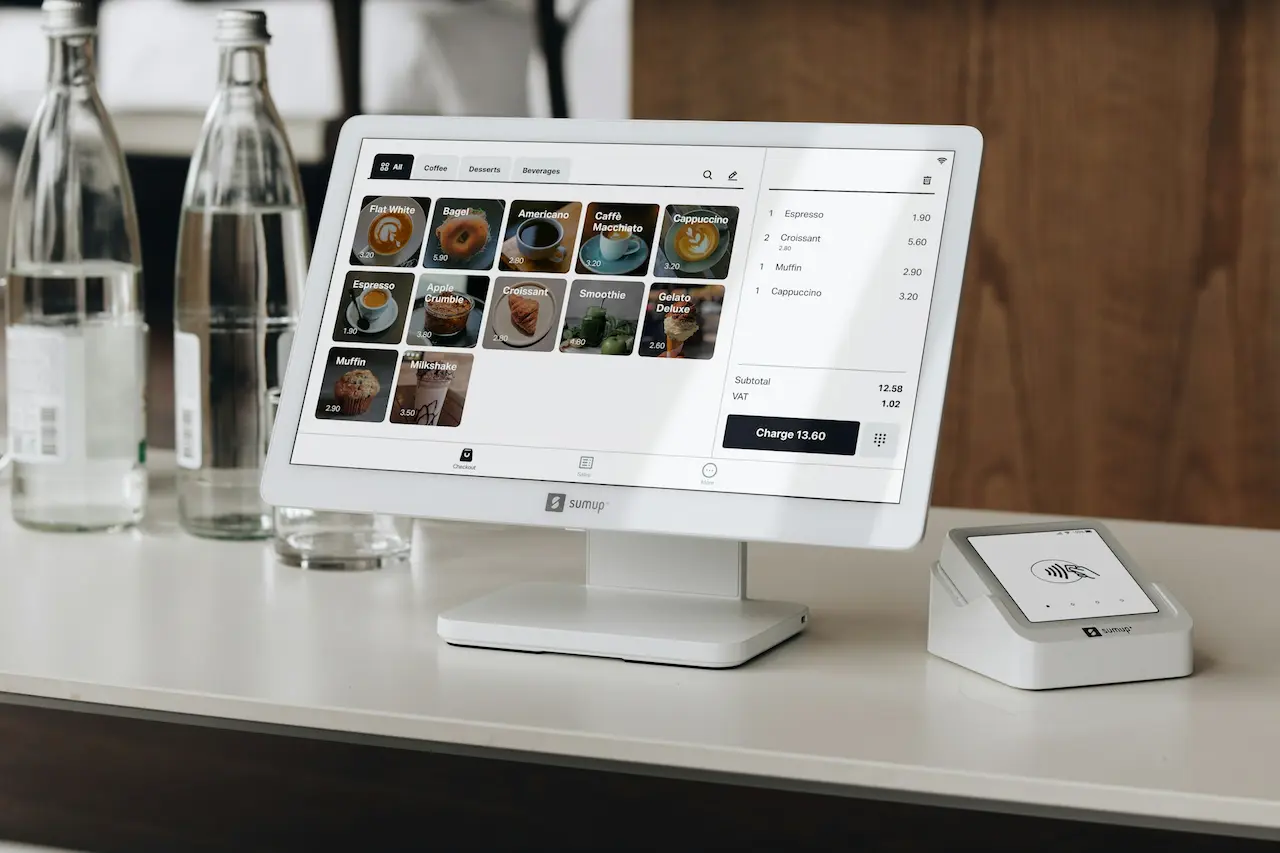Retail POS for Pop-Ups and Mobile Stores
Retail POS for Pop-Ups and Mobile Stores: What You Need to Know
What you need to know about retail POS for pop-ups and mobile stores. The modern concept of commerce is undergoing significant changes. This inevitably leads to the transformation of successful and practical tools for accomplishing business. Today, many entrepreneurs opt for more flexible business formats that enable them to reduce the cost of renting stationary points, as well as investments in equipment. Many are also actively seeking new, potentially profitable locations that are “untouched” by competitors, and testing completely new ideas. These advantages are the reason for the popularity of mobile points, temporary pavilions, pop-up stores, and portable shops.
However, while receiving some excellent benefits, entrepreneurs may lose the ability to effectively manage sales and personnel, control assortment and stocks, and variability of payment methods. And this is where Retail POS solutions become lifesavers, helping businesses cope with all concerns.
Let’s take a closer look at what a POS system is, why it’s critical, its key features, and how to distinguish a good one.
What is Retail POS and Why Every Business Needs It
The term “Retail POS” is a direct abbreviation of the phrase “Retail Point of Sale.” The designation refers to a comprehensive tech package that integrates specialised software with a convenient device or system of devices for interacting with clients and staff, managing payments, analytics, stock monitoring, order running, and resolving other business-related issues.
Such a complex will be helpful for literally any type of business, since it works on a wide variety of devices, in particular:
- Stationary POS terminals, including a built-in receipt printer and bank PIN pad connection. A universal solution for stores and mobile points.
- Tablets of various sizes, with and without stands, are ideal for coffee shops, kiosks, stalls, and food trucks with high traffic.
- Mobile smartphones are an ideal minimalist solution that allows you to accept payments via Bluetooth and connect a portable printer for printing receipts — an excellent choice for couriers and moveable commerce.
The convenient format of the device, combined with innovative software, makes such an extra vital infrastructure a strategic decision for business development.

Working Ability of a High-Quality POS System
Let’s consider several objectively critical aspects of a good digital ecosystem that will bring only benefits to the business. This will enable you to distinguish a truly high-quality option.
Product Management
To make your work easier, modern POS analogues should be able to:
- create product cards;
- categorize items;
- assign a price, tax amount, and apply promotions;
- add photos, videos, barcodes;
- import catalogues from another gadget.
All these points significantly enhance analytics, enabling you to manage balances and stocks effectively. This also eliminates the possibility of human error in manual data management.
Receiving Orders
Quick purchase fulfilment is significant for on-the-go points of sale, where, unlike stationary stores, there are often no waiting areas or the ability to install several cash registers. A good POS allows you to:
- quickly create an order in literally a few seconds;
- enable the client to choose a payment method, such as cash, credit card, or contactless payment;
- quickly generate a paper or e-receipt;
A clear e-ecosystem with a simplified UI and fast operation is extremely important for any business, but specifically for high-traffic points of sale.

Personnel Management
A proper e-architecture should have a virtual infrastructure for personnel administration, in particular:
- tracking sales of each staff member and the shift as a whole;
- tracking working hours from logging in to logging out;
- setting up roles to manage access levels and provide unique opportunities to managers, cashiers, administrators, accountants, etc.
These and other features help to mitigate the risks of abuse of authority, facilitate cash management, and monitor employee performance.
Adaptation for Different Types of Businesses
One of the primary advantages of POS is its ability to adapt to any segment or industry. The user should be able to customize the menu if they own a restaurant or create a catalogue of services if they open a beauty salon. If you own multiple types of craft businesses, such as a flower shop, handicrafts, or a takeaway coffee shop, ensure that you can account for the costs of materials and supplies in the system.
Scaling
Additionally, ensure that the system can be scaled, as mobile points can become stationary, and small kiosks can evolve into large networks spanning the city. Centralized management is essential for:
- control of the assortment at different points;
- management of prices, promotions, and seasonal offers automatically in several branches;
- the ability to conduct analytics and accounting for the entire network in one place.
This way, you can easily track the work of points located on different streets, districts, or even cities.
Improving Customer Service
Using a POS system, you collect a lot of data. This is great for marketing purposes and for improving service. You can create your own loyalty program or provide the ability to return goods by receipt number quickly. Additionally, you can track more popular services or goods and expand the range according to the data. Alternatively, consider setting promotions for less popular items.
Extra Features
Today, progressive POS developers strive to offer more unique and pro-grade settings.
As you select a system, check with the retailer about one or more of the following progressive specifications:
- automation of most routine operations;
- incorporation of third-party platforms;
- support for loyalty programs;
- work in offline mode;
- multi-device;
- multilingualism or multi-currency.
- modern security protocols;
It is essential to recognize that these extras enable a business to surpass the boundaries of merely stable operation and start to grow rapidly.
Summing Up — POS is the Future
Nowadays, flexibility, mobility, speed, and the ability to analyse are the main identifiers of a potentially successful project.
By choosing a high-quality Retail POS, the holder of a portable point of sale or pop-up store makes an impeccable funding of empowering the sustainability and productivity of their firm.
In a rapidly developing environment, it is impossible to do without digitalization and the minimization of manual labour to achieve stable results. This is the reason why a high-quality POS system is the future that is already here.
